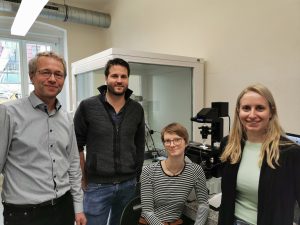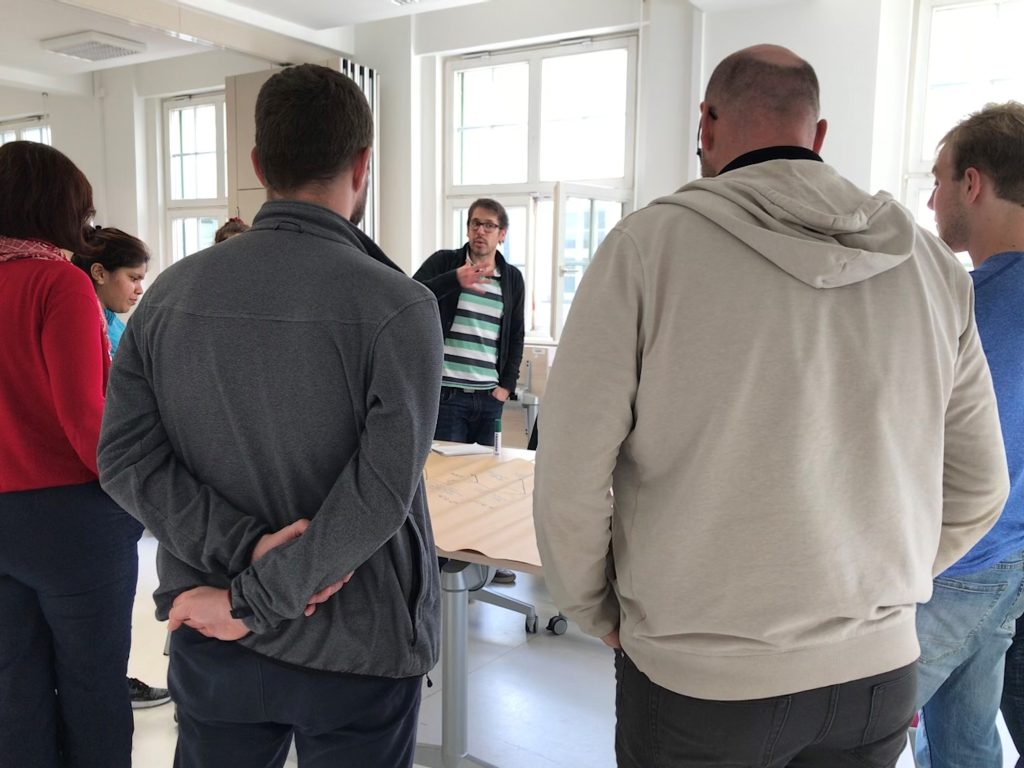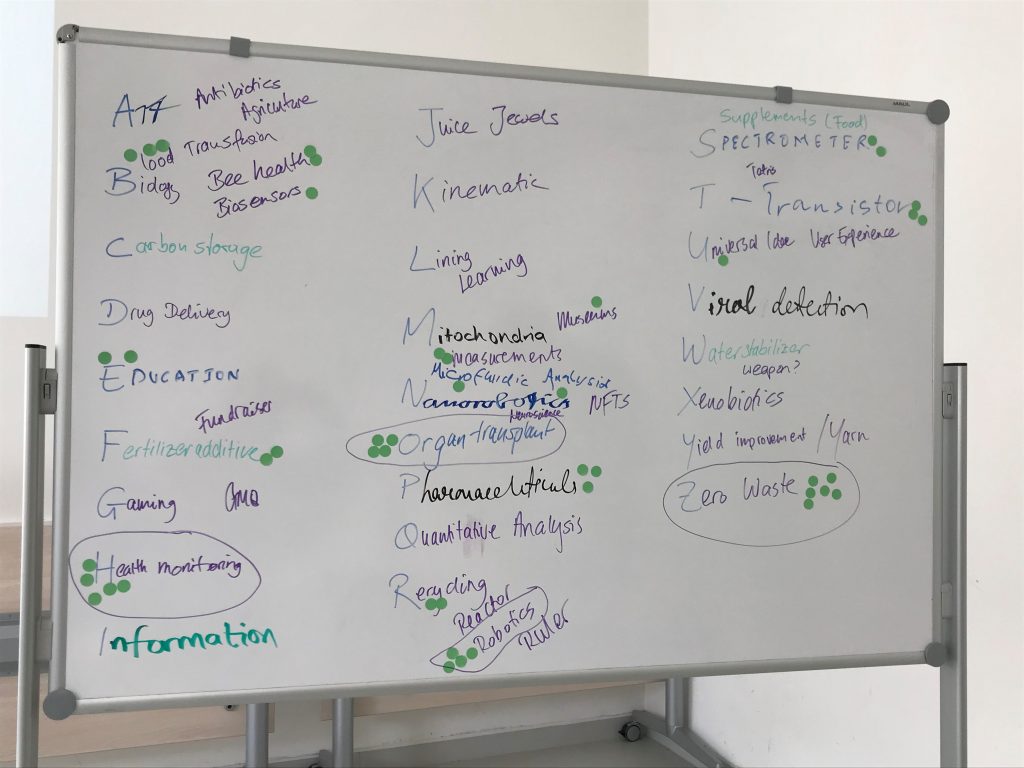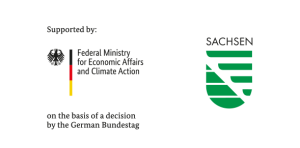Recently, our Eurostars project “SoftKollP: the first portable biosensor for quantitative field monitoring of anthropogenic contaminants in the environment” started.
Together with our partners HiSS Diagnostics GmbH (lead, Freiburg and Leipzig) and ECTICA TECHNOLOGIES AG (Zurich), we aim at bringing to the market the SoftKollP technology, as the first highly sensitive technology for fast, easy-to-use, cheap and quantitative point-of use monitoring of anthropogenic contaminants in the environment and agricultural sector. The SoftKollP technology is based on soft hydrogel microparticles and was invented at Leipzig University and TU Dresden. As the market entry product line, we will develop SoftKollP for the critically discussed and widely distributed herbicide glyphosate and its persistent degradation product AMPA.

From left to right: Prof. Tilo Pompe, Dr. Benjamin Simona, Rebecca Graul and Veronika Riedl.


